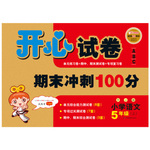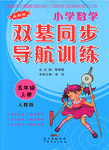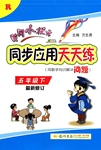题目内容
【题目】Directions: Read the following passage. Summarize the main idea and the main points of the passage in no more than 60 words, Use your own words as far as possible
Parents everywhere praise their kids when they do well in school, win a ball game, or build an impressive sandcastle, anything that seems to be something "remarkable". Jenn Berman, author of The A to Z Guide to Raising Happy and Confident Kids, says, "We've gone to the opposite extreme of a few decades ago when parents tended to be stricter." giving kids a lot of praise, parents think they're building their children's confidence
In fact they may he wrong. Too much praise can make kids afraid to try new, things or take a risk for fear of not being able to stay on top where their parents praise has put them. Still, not giving enough praise can be just as damaging as giving too much. Kids will feel like they're not good enough and, as a result, may see no point in trying hard for their accomplishments
So what is the right amount of praise? Experts say that the quality of praise is more important than the quantity. If praise is sincere and focused an the effort - mot the outcome, you can give it as often as your child does something that deserves a verbal reward. "We should especially recognize our children's efforts to put themselves and work hard to achieve a goal, says Donahue, author of parenting Without Fear, "Your son may not be the best basketball player on his team. But if he's out there every day and playing hard, you should praise his effort regardless of whether his team wins or loses."
Praising the effort can also mean you need to identify the part where your kids make special
efforts in a particular scenario(情景). Instead of saying, "you are such a good baseball player", say, "you hit the ball really hard. You are an excellent first baseman. "Being specific is much better and helps kids identify with their special skill, Donahue says
【答案】Parents praise their kids to boost their confidence. However, too much praise may stop their kids from exploring new things. Kids may also feel discouraged and stop trying without adequate praise. So what matters is the quality of praise, Parents should learn to give sincere and specific praises for their efforts in a particular case
【解析】
概要写作,简言之就是对所读过的文章简要概括,写出文章的中心大意,也可称之为摘要。主要考察对文章主旨大意的概括和准确获取关键词的能力,同时考查学生用简洁语言概括文章重要信息的能力及对文章整体结构的把握能力。
写作步骤
1)细读原文。找出文章主旨和结构,明确各段的大意,并列出原文要点。分析原文的内容和结构,将内容分项扼要表述并注意在结构上的顺序。在此基础上选出与文章主题密切相关的部分。
如本文,首先读第一段可知,本文主要叙述了孩子们在学校表现出色时,父母总会进行表扬,给予他们信心。可译为:Parents praise their kids to boost their confidence.。第二段主旨大意为:事实上他们可能错了。太多的表扬会让孩子害怕尝试新事物,或者冒险,因为害怕无法在父母表扬的地方保持领先地位。因此要恰当地表扬。此大意可重新表达为:However, too much praise may stop their kids from exploring new things. Kids may also feel discouraged and stop trying without adequate praise.于是第三段和第四段提出如何才能恰当地表扬,即“Experts say that the quality of praise is more important than the quantity. If praise is sincere and focused an the effort - mot the outcome, you can give it as often as your child does something that deserves a verbal reward.”还要“Praising the effort can also mean you need to identify the part where your kids make special efforts in a particular scenario”,表扬重在质量,要真诚。要在特定情况下的努力给予真诚和具体的表扬。此大意可重新表述为:o what matters is the quality of praise, Parents should learn to give sincere and specific praises for their efforts in a particular case
2)在写作时概要应包括原文中的主要事实,同原文保持协调,略去不必要的细节。最后注意要点之间的衔接,安排好篇幅的比例。不排斥用原文的某些词句,但不要照搬原文的句子,如果不能完全用自己的话语表达,至少对原文句子做一些句型转换,同义词的运用,概括,主被动语态,合并句子等,形成新的东西。
3)看是否符合规定的词数要求。

 开心试卷期末冲刺100分系列答案
开心试卷期末冲刺100分系列答案 双基同步导航训练系列答案
双基同步导航训练系列答案 黄冈小状元同步计算天天练系列答案
黄冈小状元同步计算天天练系列答案